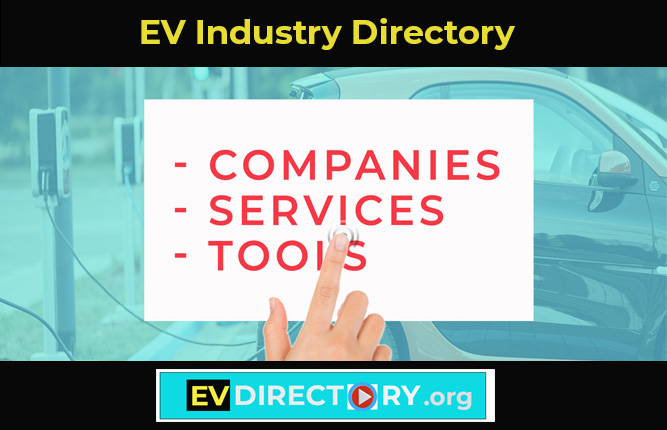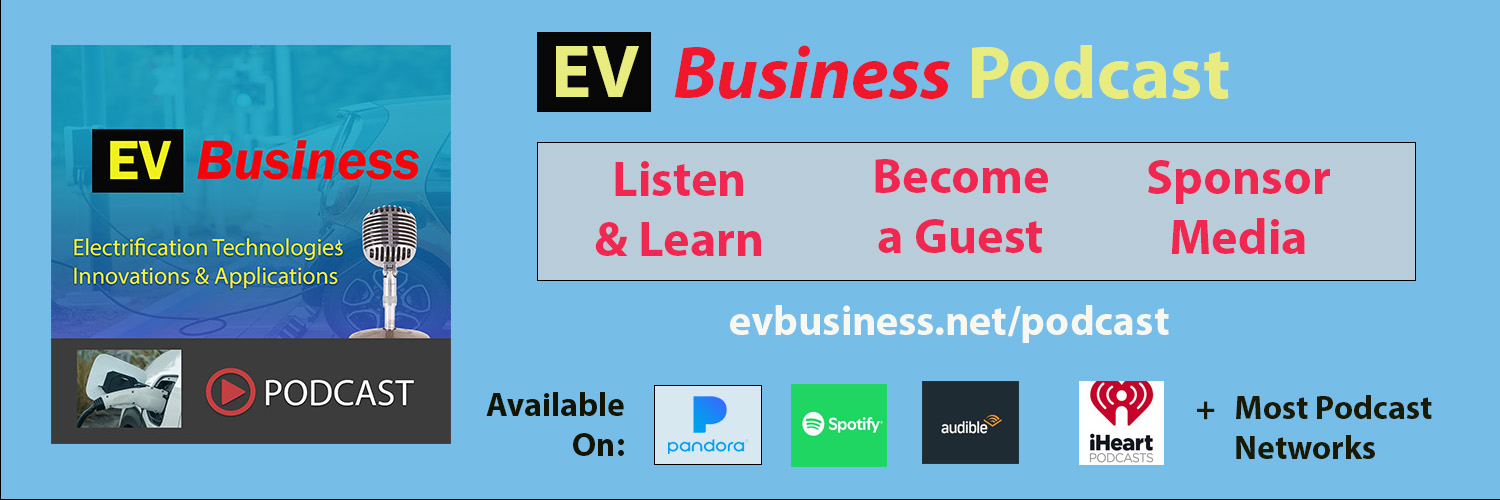EV Charging Certification Programs deliver training and credentials ensuring owners, operators, and professionals have the expertise to safely design, install, operate, and maintain EV charging systems. Many EV charging projects fail or underperform because installers and operators lack standardized training, safety knowledge, and proof of technical competence. EV Charging Certification Programs solve these problems by ensuring professionals gain the expertise to design, install, operate, and maintain EV charging systems that meet industry and safety standards. These programs feature accredited curricula aligned with NEC and OSHA codes, hands-on training for real-world installation, multi-level certifications tailored for electricians and property managers, and verified credentials for employer trust. Additional benefits include flexible delivery formats, cybersecurity awareness, energy management integration, and guidance on incentives and regulations that enhance project success and sustainability. By learning more about EV Charging Certification Programs, professionals and companies can build safer, more efficient, and future-ready EV infrastructure while strengthening their credibility and career opportunities.
EV Charging Certification Programs

EV Charging Certification Programs List
BTC POWER – Academy of Charging Education – Offers technician certification courses for BTC POWER charger installation, commissioning, and servicing.
ChargePoint Training and Certification – Provides modular AC/DC certification and credentials for safe installation, commissioning, and maintenance of ChargePoint EV chargers.
ChargerHelp! – EVSE Technician Online Course – Offers online technician training for EVSE maintenance and repair fundamentals.
Civic Works – EVSE Technician Training – Hands-on workforce development training program for EVSE installation and maintenance.
Electric Vehicle Infrastructure Training Program (EVITP) – Provides standardized EV charging infrastructure training and certification for licensed electricians across North America.
Electric Vehicle Technician Training Program – Online program teaching diagnostics, servicing, and installation of EV charging systems and EVs.
EV Connect – EVCS Certification Program – Certifies charging station hardware to comply with open standards such as OCPP for interoperability and reliability.
EVBox – Training & Certification – Provides partner and installer technical training and certification for EVBox charging stations.
FLO – Technician Training & Certification – Provides training and certification for technicians to maintain and operate FLO EV charging systems.
Kempower – Training Services – Delivers tailored training for installation, commissioning, and maintenance of Kempower EV charging hardware.
Leviton – EV-Pro Contractor Certification Program – Certifies contractors who install Leviton EV charging systems to enhance professional credibility and safety.
Olive-Harvey College – EV Infrastructure Certification Course – Hands-on training course for EV charger installation, maintenance, and repair for Levels 1–3.
Pasadena City College – EV Charging Station Technician Certificate – Community college certificate covering EV charger installation, codes, troubleshooting, and safety.
PowerFlex Technologies – Partner Certification Course – Self-paced training covering EV charger installation, product features, and best practices leading to certification.
Qmerit – Workforce Development & Training – Provides workforce training and partner certification resources for EV charger installation and operations.
SAE International – EVSE Technician Certification – Offers EVSE Technician Certification validating knowledge and skills to maintain, repair, and operate EV charging stations.
SME – Electric Vehicle Fundamentals (EVF) Certification – Foundational EV fundamentals credential for those entering the EV and EV charging workforce.
Triton College – EV Charger Installation & Maintenance – Certificate program covering EV charger installation, safety protocols, and maintenance procedures.
Wallbox – Installer Partner Programme – Provides certification for Wallbox charger installers, offering business, marketing, and support benefits.
Women Who Charge – EVSE Repair Training – Offers 120-hour training with OSHA and EVSE repair certification for the EV charger maintenance workforce.
EV Charging Certification Programs Key Features and Capabilities
Accreditation
Accreditation ensures the certification program is formally recognized by industry authorities such as utilities, OEMs, or licensing boards, and may offer Continuing Education Units (CEUs) toward professional renewal. This is important because accredited programs validate the credibility and quality of training, helping graduates gain trust and recognition in the EV charging industry.
Career Support
Career support connects trainees with EV industry employers, manufacturers, and workforce development initiatives through job boards, internships, and placement partnerships. This feature matters because it helps graduates quickly transition from training to employment, strengthening the industry’s skilled workforce pipeline.
Certification Credentials
Certification credentials provide official documentation—digital or printed—that confirms completion of the program and demonstration of required competencies. This is important because employers and clients can easily verify certified professionals, ensuring that installations and operations meet industry standards.
Certification Levels
Certification levels create distinct learning pathways for electricians, owners, and operators, providing credentials tailored to different professional roles. This helps participants gain the specific expertise they need—whether for field installation, system design, or facility management—making training more relevant and career-aligned.
Communication Systems
Communication systems training covers topics such as OCPP networking, charger connectivity, data protocols, and cybersecurity fundamentals. This is vital because most modern EV chargers are “smart” devices that rely on reliable and secure data communication for billing, monitoring, and remote management.
Compliance & Safety Standards
Compliance and safety instruction ensures all work aligns with NEC, OSHA, NFPA, and other recognized codes and standards for electrical safety. This feature is critical because safe and compliant installations prevent accidents, reduce liability, and ensure approval by inspectors and local authorities.
Credential Verification
Credential verification provides secure, traceable proof of certification, often through digital credentials, blockchain validation, or QR-coded certificates. This is important because it allows employers, utilities, and customers to confirm that individuals and companies meet certified EVSE competency requirements.
Curriculum Scope
The curriculum scope covers every stage of EV charging systems—design, electrical installation, commissioning, maintenance, and operations—aligned with national and international standards. A broad curriculum ensures learners understand the entire system lifecycle, enabling them to manage projects safely, efficiently, and cost-effectively.
Cybersecurity
Cybersecurity training teaches participants how to protect EV charging systems from data breaches, unauthorized access, and firmware tampering. This is increasingly important because EV chargers are connected IoT devices, and cybersecurity failures can cause service interruptions or expose sensitive user data.
Delivery Formats
Delivery formats offer flexible training options, including online, in-person, and hybrid programs designed to meet diverse learning needs and regional code requirements. This flexibility matters because it allows working professionals, electricians, and property owners to complete certification without interrupting their regular schedules.
Energy Management Integration
Energy management integration explores smart charging strategies such as load balancing, demand response, renewable energy coupling, and grid coordination. This is important because these skills help reduce energy costs, prevent grid overloads, and support sustainability goals through efficient energy use.
Grant and Incentive Programs
Grant and incentive training teaches participants how to find and apply for EV infrastructure funding, tax credits, and rebate programs. Understanding incentive programs is valuable because it helps property owners and integrators offset installation costs and increase project financial viability.
Hands-On Training
Hands-on training provides real-world lab experience where participants install, configure, and troubleshoot charging stations under professional supervision. This practical component is essential because it transforms theoretical learning into field-ready skills, ensuring trainees can perform safely and effectively on live equipment.
Instructor Expertise
Instructor expertise ensures that trainers have real-world experience in EVSE installation, design, or engineering, often supported by manufacturer or utility credentials. This is important because experienced instructors can provide context, share field insights, and help students understand practical problem-solving approaches.
Operational Management
Operational management training teaches participants how to plan maintenance, analyze costs, and develop long-term charging system business models. This matters because efficient management maximizes charger uptime, improves profitability, and ensures sustainable operations over the system’s lifecycle.
Project Management
Project management training covers site assessment, budgeting, scheduling, and coordination with contractors, utilities, and inspectors. This is important because successful charging deployments depend on proper planning, communication, and coordination across multiple stakeholders.
Regulatory Requirements
Regulatory requirements training helps learners understand and comply with local, state, and federal codes, including ADA accessibility, signage, and zoning rules. This knowledge is essential because compliance ensures that installations are legally approved, accessible, and eligible for grants or incentives.
Technology Neutral Content
Technology-neutral content teaches using multiple charger brands and protocols, ensuring participants develop transferable, cross-platform skills. This feature is important because the EVSE industry includes many manufacturers, and multi-vendor expertise increases career flexibility and adaptability.
Troubleshooting & Diagnostics
Troubleshooting and diagnostics training develops the ability to identify and resolve common issues in hardware, firmware, and networking systems. This is vital because rapid problem-solving reduces downtime, improves customer satisfaction, and extends the lifespan of EV charging infrastructure.
EV Charging Certification Programs Glossary
Accessibility Standards (ADA) – Regulations ensuring that EV charging installations are accessible to individuals with disabilities, including requirements for parking space design, signage, and reach ranges.
Accreditation – Formal recognition granted to an educational or training program verifying that it meets established quality and competency standards in the EV industry.
American National Standards Institute (ANSI) – An organization that oversees the development and implementation of voluntary consensus standards for products and processes, including EV charging safety and testing.
Battery Energy Storage System (BESS) – A system that stores electrical energy for later use, often integrated with EV charging sites to manage demand, reduce costs, and support renewable energy use.
Charging Network Operator (CNO) – A company or organization that manages the operation, billing, and maintenance of EV charging stations across multiple sites.
Continuing Education Units (CEUs) – Standardized credits earned by completing professional development courses that may be required to maintain certifications or licenses.
Cybersecurity – The practice of protecting EV chargers, networks, and data systems from unauthorized access, attacks, or damage to ensure safety and reliability.
Demand Response (DR) – A grid management strategy that adjusts power usage of EV chargers during peak demand to improve efficiency and prevent overloads.
Distributed Energy Resources (DER) – Decentralized power generation sources, such as solar panels or battery systems, that can interact with EV charging systems to balance grid demand.
Electric Vehicle Charging Equipment (EVCE) – The hardware and software components that supply electrical energy to electric vehicles, often referred to as EV supply equipment (EVSE).
Electric Vehicle Infrastructure Training Program (EVITP) – A widely recognized certification program that provides standardized training for electricians to safely install and maintain EV charging systems.
Electric Vehicle Service Provider (EVSP) – A company that delivers network management, data services, or billing functions for EV charging operations.
Electric Vehicle Supply Equipment (EVSE) – The complete assembly of components, conductors, and software used to transfer electricity from the power grid to an EV safely.
Energy Management System (EMS) – A control platform that monitors and optimizes the flow of electricity among chargers, buildings, and the grid to improve efficiency and reduce costs.
Load Management – A method of distributing electrical demand across chargers to prevent overloading electrical circuits and reduce peak demand charges.
Microgrid – A localized energy system that can operate independently or alongside the main grid, often integrating solar, storage, and EV charging infrastructure for energy resilience.
National Electrical Code (NEC) – A set of regulations published by the National Fire Protection Association (NFPA) that outlines safe electrical design, installation, and inspection practices, including EVSE requirements.
National Fire Protection Association (NFPA) – The organization that develops fire and electrical safety codes and standards such as NFPA 70 and NFPA 70E used in EV charger installations.
Occupational Safety and Health Administration (OSHA) – A U.S. agency that sets and enforces safety standards to protect workers from electrical hazards and unsafe installation practices.
Open Charge Alliance (OCA) – The global consortium that manages and updates the OCPP standard to ensure open communication and interoperability in EV charging networks.
Open Charge Point Interface (OCPI) – A communication protocol that enables roaming, billing, and data exchange between different EV charging networks and service providers, supporting interoperability at the service level.
Open Charge Point Protocol (OCPP) – A universal communication standard that enables interoperability between EV chargers and charging network management systems.
Plug and Charge (PnC) – A feature that allows EVs to automatically identify and authenticate with chargers for seamless billing and charging without manual card or app use.
Power Distribution Unit (PDU) – A device that manages and distributes electrical power to multiple chargers or connected systems within an EV charging installation.
Project Management – The structured process of planning, scheduling, budgeting, and coordinating all activities required for successful EV charger installation and commissioning.
Renewable Energy Integration – The ability to connect EV charging systems to renewable energy sources such as solar or wind power to reduce emissions and operational costs.
Smart Charging – A controlled charging approach that optimizes charging time, cost, and energy use based on grid demand, pricing signals, or user preferences.
Vehicle-to-Grid (V2G) – A bidirectional charging technology that allows EVs to discharge stored energy back into the grid or a facility, providing grid support and potential revenue.

